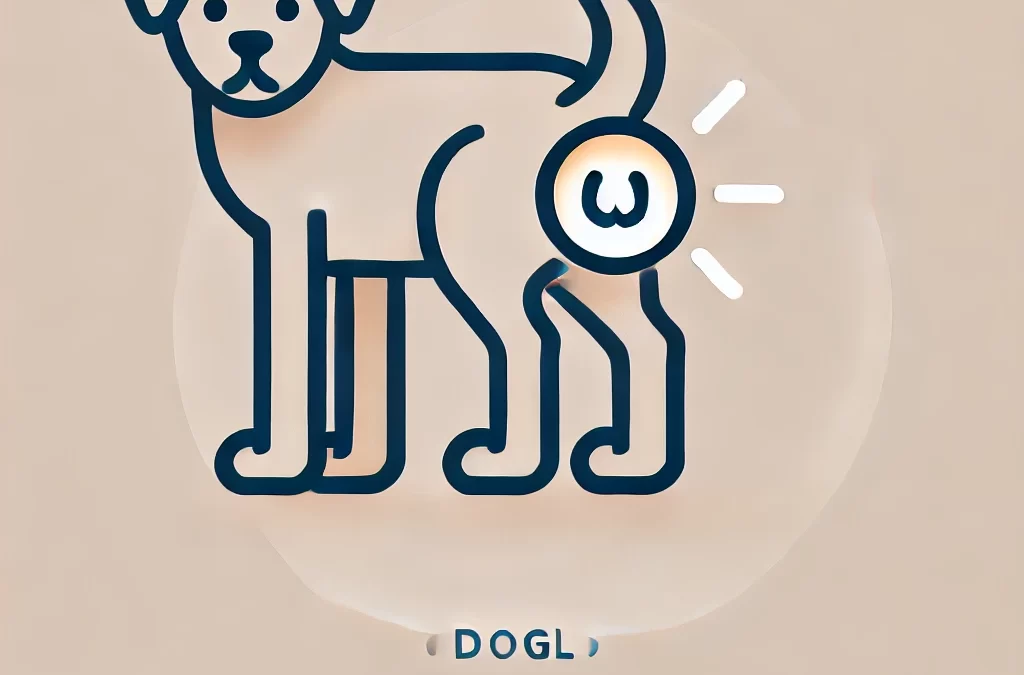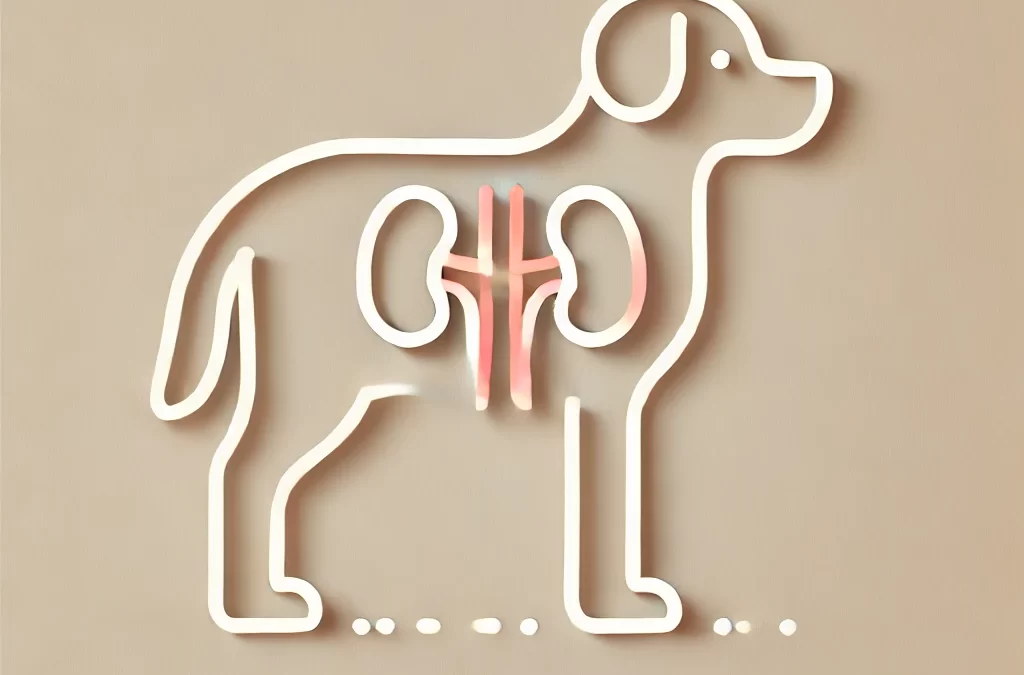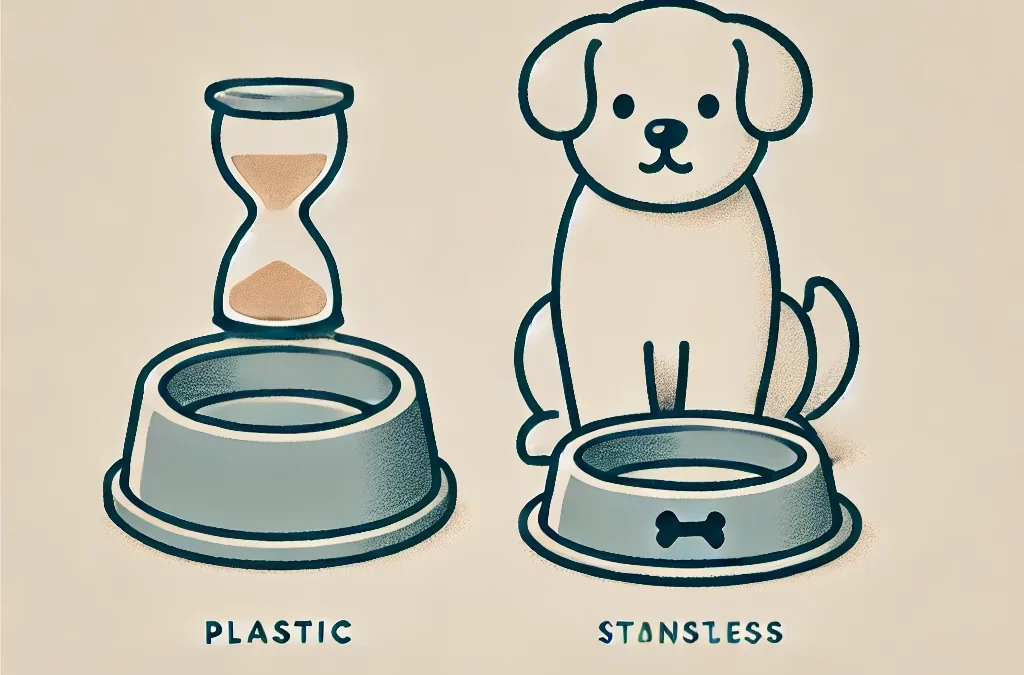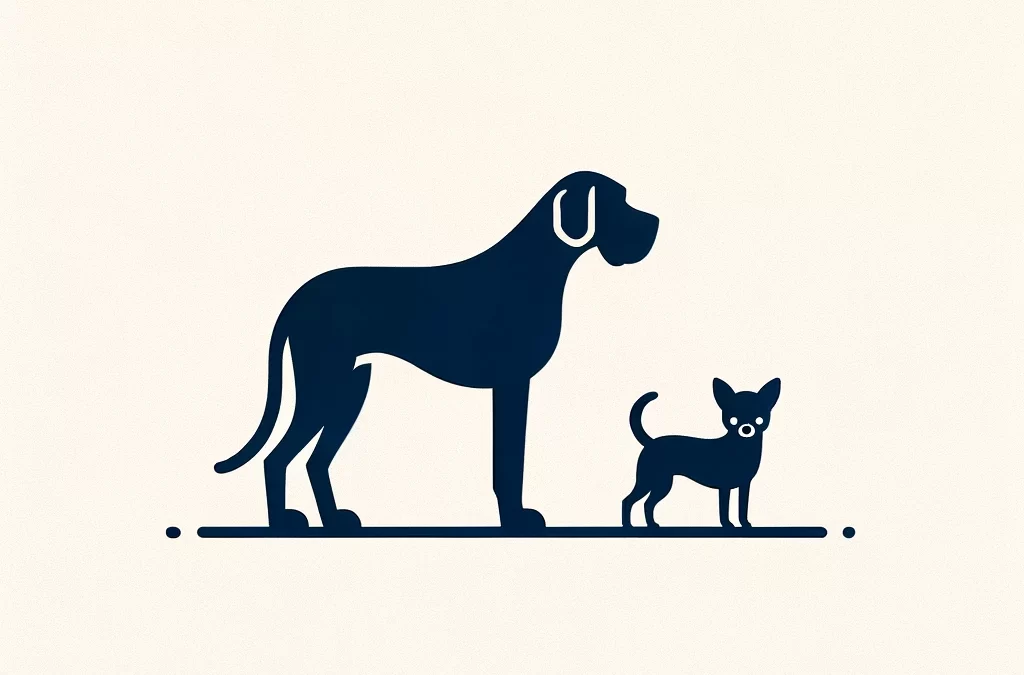
door TCMVET | 13 dec. 2024 | Hondenkanker en tumoren
Neuskanker bij honden, ook wel neuskanker genoemd, is een relatief zeldzame maar agressieve aandoening die de neusholte of sinussen aantast. Hoewel het minder dan 1% van alle hondenkankers vertegenwoordigt, ligt de ernst ervan in de invasieve aard ervan en de moeilijkheid van vroege detectie. Dit artikel gaat dieper in op de symptomen, diagnose, behandelingsopties en ondersteunende zorg voor honden die vechten tegen neuskanker.
Wat is neuskanker bij honden?
Canine neuskanker betreft voornamelijk tumoren die zich ontwikkelen in de neusholtes of sinussen. Het meest voorkomende type is adenocarcinoom, maar andere vormen zoals plaveiselcelcarcinoom, fibrosarcoom of osteosarcoom kunnen ook voorkomen. Deze aandoening treft meestal oudere honden, waarbij grotere rassen een iets hoger risico lijken te lopen.
Tekenen en symptomen
Vroege tekenen van neuskanker kunnen subtiel zijn en worden vaak aangezien voor luchtweginfecties of allergieën. Naarmate de ziekte vordert, worden de symptomen duidelijker. Let op het volgende:
- Aanhoudende neusuitvloeiing
Een kenmerkend symptoom is een unilaterale afscheiding (die één neusgat aantast) die bloederig of slijmerig van aard is.
- Vaak niezen
Chronisch niezen dat niet verbetert met behandeling, kan duiden op neusirritatie door een tumor.
- Zwelling van het gezicht
Zwelling rond de neus, ogen of het voorhoofd kan optreden omdat de tumor omliggende structuren aantast.
- Ademhalingsmoeilijkheden
Snurken of luidruchtig ademen kan duiden op een verstopping in de neusholtes.
- Neusbloedingen (Epistaxis)
Er wordt vaak melding gemaakt van intermitterende of aanhoudende bloedingen uit de neus.
- Neurologische symptomen
Als de tumor zich uitbreidt tot in de hersenen, kunnen symptomen zoals toevallen, desoriëntatie en gedragsveranderingen optreden.
- Verlies van eetlust en gewichtsverlies
Zoals bij veel vormen van kanker kunnen systemische effecten leiden tot een verminderde voedselinname en gewichtsverlies.
Diagnose
Om neuskanker te diagnosticeren, is een grondig onderzoek nodig, waaronder:
- Fysiek onderzoek:Een dierenarts kan controleren op asymmetrie in het gezicht of abnormale geluiden tijdens de ademhaling.
- Rhinoscopie:Een kleine camera die in de neusholten wordt ingebracht, helpt de tumor zichtbaar te maken.
- In beeld brengen:Röntgenfoto's, CT-scans en MRI-scans geven een gedetailleerd beeld van de tumor en de verspreiding ervan.
- Biopsie:Weefselmonsters bevestigen het type en de ernst van de kanker.
Behandelingsopties
De behandeling hangt af van de grootte, het type en het stadium van de tumor, en ook van de algehele gezondheid van uw hond. Opties zijn onder andere:
- Bestralingstherapie
Straling is de meest effectieve behandeling voor neuskanker, gericht op het verkleinen van de tumor en het verlichten van symptomen. Hoewel het de kanker misschien niet geneest, kan het de kwaliteit van leven aanzienlijk verbeteren.
- Chirurgie
Het operatief verwijderen van de tumor is een uitdaging vanwege de complexe anatomie van het neusgebied, maar in specifieke gevallen kan het wel geprobeerd worden.
- Chemotherapie
Chemotherapie wordt minder vaak toegepast, maar kan worden aanbevolen voor bepaalde soorten tumoren of als aanvulling op andere behandelingen.
- Palliatieve zorg
Wanneer curatieve behandeling geen optie is, richt palliatieve zorg zich op het verlichten van pijn en ongemak door middel van medicijnen, waaronder ontstekingsremmers, pijnstillers en neusdecongestiva.
Natuurlijke therapieën voor ondersteunende zorg
Door holistische benaderingen te combineren met conventionele behandelingen, kunt u het comfort van uw hond verbeteren:
- Kruidensupplementen
Kruiden zoals kurkuma (curcumine) en astragalus wordt aangenomen dat ze ontstekingsremmende en immuunversterkende eigenschappen hebben.
- Dieetaanpassingen
Een kwalitatief hoogstaand, koolhydraatarm dieet ondersteunt de algemene gezondheid en vermindert ontstekingen.
- CBD-olie
Cannabidiol kan helpen bij het beheersen van pijn en het verminderen van angst bij honden met gevorderde kanker.
Prognose en kwaliteit van leven
De prognose voor neuskanker bij honden hangt af van factoren zoals het type tumor en het stadium bij diagnose. Met radiotherapie ervaren veel honden symptoomverlichting en langere overlevingstijden, vaak variërend van 8 tot 18 maanden. Zonder behandeling vordert de ziekte snel, vaak binnen enkele weken tot enkele maanden.
Hoe u uw hond kunt ondersteunen
- Houd de symptomen in de gaten: Houd veranderingen in uw ademhaling, eetpatroon of energieniveau bij.
- Regelmatige bezoeken aan de dierenartsRegelmatige controles zorgen ervoor dat de conditie van uw hond nauwlettend in de gaten wordt gehouden.
- Zorg voor comfort: Zacht beddengoed, een rustige omgeving en gemakkelijke toegang tot voedsel en water maken een groot verschil.
Laatste gedachten
Neuskanker bij honden is een ontmoedigende diagnose, maar met tijdige interventie en een uitgebreid zorgplan kunt u uw hond de best mogelijke kwaliteit van leven geven. Raadpleeg altijd uw dierenarts om behandelingsopties te verkennen die zijn afgestemd op de specifieke behoeften van uw hond.

door TCMVET | 13 dec. 2024 | Hondenkanker en tumoren
Nierkanker bij honden is zeldzaam, maar het is een ernstige aandoening die een grote impact kan hebben op de kwaliteit van leven van uw harige vriend. Het vroegtijdig herkennen van de signalen kan een groot verschil maken in de behandelresultaten. In dit artikel onderzoeken we de veelzeggende signalen van nierkanker, bespreken we waarom het vaak onopgemerkt blijft en bieden we inzicht in ondersteunende zorgopties.
Wat is nierkanker bij honden?
Nierkanker verwijst naar abnormale celgroei in één of beide nieren. Bij honden is niercelcarcinoom het meest voorkomende type nierkanker, dat vooral oudere honden treft. Hoewel de exacte oorzaak onduidelijk blijft, kunnen genetische aanleg en blootstelling aan toxines een rol spelen.
De subtiele signalen: waarom nierkanker vaak in het zicht verborgen blijft
Symptomen van nierkanker kunnen gemakkelijk worden aangezien voor minder ernstige problemen zoals urineweginfecties of algemene veroudering. Deze overlapping in symptomen vertraagt vaak de diagnose. Hier moet u op letten:
- Vaak plassen of moeite met plassen
Een verhoogde frequentie van het urineren of zichtbaar ongemak tijdens het urineren kan duiden op nierstress of -obstructie veroorzaakt door een tumor.
- Bloed in de urine (hematurie)
Felrode of donkerbruine urine is een belangrijk waarschuwingssignaal dat er mogelijk iets mis is met de nieren van uw hond.
- Verlies van eetlust
Een plotseling gebrek aan interesse in eten, gecombineerd met gewichtsverlies, kan duiden op systemische problemen die verband houden met de nierfunctie.
- Lethargie
Als uw hond ongewoon moe lijkt of niet wil deelnemen aan dagelijkse activiteiten, kan dit wijzen op de onderliggende vermoeidheid die wordt veroorzaakt door een nierfunctiestoornis.
- Abdominal Swelling
Een zwelling in de buik kan het gevolg zijn van een grote niertumor die tegen andere organen drukt.
- Braken en misselijkheid
Naarmate nierkanker vordert, hopen zich gifstoffen op in het bloed, wat leidt tot maag- en darmklachten.
Hoe nierkanker verschilt van andere aandoeningen
Veel van de bovenstaande symptomen lijken op die van nierziekte, blaasontstekingen of zelfs diabetes. Bij nierkanker zijn deze symptomen echter hardnekkiger en verergeren ze na verloop van tijd zonder behandeling.
De rol van diagnostiek
Om nierkanker op te sporen, is een combinatie van tests nodig:
- Met behulp van echografie en röntgenfoto's kunnen mogelijke tumoren in beeld worden gebracht.
- Bloedonderzoek wijst uit dat de nieren niet goed werken of dat er sprake is van bloedarmoede.
- Met urineonderzoek kunnen microscopisch kleine bloed- of kankercellen worden geïdentificeerd.
Dierenartsen kunnen ook een biopsie aanbevelen om het type en de ernst van de kanker te bevestigen.
Natuurlijke therapieën voor ondersteunende zorg
Hoewel chirurgische verwijdering van de aangetaste nier vaak de primaire behandeling is, kunnen holistische benaderingen traditionele methoden aanvullen om de kwaliteit van leven van uw hond te verbeteren.
- Kruiden remedie
Kruiden zoals Chuanxiong (Szechuan-lavas) kunnen de bloedsomloop verbeteren en ontstekingen rond de nieren verminderen.
- Dieetaanpassingen
Een dieet met weinig fosfor en hoogwaardige eiwitten ondersteunt de nierfunctie en vermindert de belasting van de resterende nier.
- CBD-olie
Cannabidiol kan helpen bij het beheersen van pijn en het verminderen van stress bij honden die een behandeling ondergaan.
Preventietips: kunt u het risico verminderen?
Hoewel het onmogelijk is om nierkanker volledig te voorkomen, zijn er wel stappen die u kunt ondernemen om de algehele gezondheid van uw nieren te bevorderen:
- Zorg voor vers, gefilterd water.
- Vermijd blootstelling aan bekende kankerverwekkende stoffen, zoals pesticiden.
- Laat uw hond regelmatig controleren bij de dierenarts, vooral als het om oudere honden gaat.
Wanneer moet u een dierenarts raadplegen?
Als u een van de bovenstaande symptomen opmerkt, raadpleeg dan onmiddellijk uw dierenarts. Vroegtijdige interventie kan leiden tot betere resultaten, of dit nu via een operatie, chemotherapie of palliatieve zorg is.
Laatste gedachten
Nierkanker bij honden is een lastige diagnose, maar proactief zijn over de gezondheid van uw hond kan een wereld van verschil maken. Door subtiele veranderingen te herkennen en tijdig medisch advies in te winnen, kunt u ervoor zorgen dat uw geliefde huisdier de zorg en het comfort krijgt dat het verdient.

door TCMVET | 12 dec. 2024 | Hondenkanker en tumoren
Anale kanker bij honden is, hoewel relatief ongewoon, een ernstige aandoening die onmiddellijke aandacht vereist. Het meest frequent gediagnosticeerde type is anale zak adenocarcinoom, een kwaadaardige tumor die ontstaat uit de anaalklieren. Dit type kanker staat bekend om zijn agressieve aard en het potentieel om zich te verspreiden naar andere delen van het lichaam. In dit artikel onderzoeken we de symptomen, diagnose, behandelingsopties en vooruitzichten voor honden die getroffen zijn door anaalkanker.
Wat is anuskanker bij honden?
Anale kanker verwijst naar de ontwikkeling van kwaadaardige tumoren in of nabij de anale klieren. Deze klieren, gelegen aan weerszijden van de anus, spelen een rol bij het afscheiden van vloeistoffen die worden gebruikt voor het markeren van territorium. Wanneer kanker zich ontwikkelt in deze klieren, groeit het vaak snel en kan het uitzaaien naar nabijgelegen lymfeklieren, longen of andere organen.
Symptomen van anuskanker bij honden
De symptomen van anuskanker bij honden kunnen variëren, afhankelijk van de grootte en locatie van de tumor en of deze zich heeft verspreid. Veelvoorkomende symptomen zijn:
- Bulten of zwellingen: Een opvallende massa of zwelling nabij de anus.
- Moeilijkheden met poepen: Persen, pijn of veranderingen in de vorm van de ontlasting als gevolg van de tumor die de endeldarm blokkeert.
- Bloeden: Bloed rond de anus of in de ontlasting.
- Schuiven of likken: Honden kunnen over de grond schuiven of de plek overmatig likken omdat ze zich ongemakkelijk voelen.
- Symptomen van hypercalciëmie: Toegenomen dorst, frequent urineren, lusteloosheid of zwakte veroorzaakt door een verhoogd calciumgehalte in het bloed.
- Gewichtsverlies en verlies van eetlust: Bij gevorderde gevallen kunnen er systemische symptomen optreden, zoals gewichtsverlies en verminderde eetlust.
Hoe wordt anuskanker vastgesteld?
Om anuskanker te diagnosticeren, gebruiken dierenartsen een combinatie van:
- Fysiek onderzoek: Controleren op knobbeltjes, zwellingen of ongemak in de anale streek.
- Fijne-naaldaspiratie of biopsie: Het afnemen van tumorweefsel om maligniteit te bevestigen.
- Bloedtesten: Het identificeren van hypercalciëmie of andere afwijkingen.
- In beeld brengen: Röntgenfoto's, echografie of CT-scans om de omvang van de kanker te bepalen en te controleren op uitzaaiingen.
Behandelingsopties voor anuskanker bij honden
De behandelmethode is afhankelijk van het stadium en de verspreiding van de kanker. Veelvoorkomende opties zijn:
- Chirurgie: De primaire behandeling voor gelokaliseerde anuskanker is chirurgische verwijdering van de tumor en mogelijk aangetaste lymfeklieren.
- Bestralingstherapie: Vaak gebruikt in combinatie met een operatie om resterende kankercellen aan te pakken.
- Chemotherapie: Aanbevolen bij uitgezaaide kanker of als aanvulling op andere behandelingen.
- Palliatieve zorg: Bij gevorderde gevallen kunnen pijnbestrijding, dieetaanpassingen en ondersteunende zorg de kwaliteit van leven verbeteren.
Prognose voor honden met anuskanker
De vooruitzichten voor honden met anuskanker zijn afhankelijk van verschillende factoren, waaronder de grootte van de tumor, of deze zich heeft verspreid en de behandeling die wordt gegeven. Vroege detectie en agressieve behandeling verbeteren de overlevingskansen, waarbij veel honden langere periodes van goede kwaliteit van leven na de behandeling ervaren. Gevorderde gevallen met metastasen hebben echter een minder gunstige prognose.
Zorgen voor een hond met anuskanker
Als huisdiereigenaar is het essentieel om een ondersteunende en comfortabele omgeving voor uw hond te creëren. Volg deze tips:
- Regelmatige dierenartsbezoeken: Plan regelmatig een controle in om de conditie van uw hond in de gaten te houden.
- Nutrition: Zorg voor een uitgebalanceerd dieet, afgestemd op de behoeften van uw hond tijdens de behandeling.
- Pijnbeheersing: Overleg met uw dierenarts om ervoor te zorgen dat uw hond zich op zijn gemak voelt.
- Emotionele steun: Geef uw hond liefde en geruststelling, zodat hij beter met de stress van de behandeling om kan gaan.
Conclusie
Hoewel anale kanker bij honden agressief is, kunnen vroege detectie en een uitgebreid behandelplan een groot verschil maken in de uitkomsten. Blijf alert op symptomen en zoek onmiddellijk veterinaire hulp als u ongebruikelijke tekenen opmerkt. Met de juiste ondersteuning en zorg kan uw hond een goede kwaliteit van leven behouden, zelfs in moeilijke tijden.

door TCMVET | 12 dec. 2024 | Hondenkanker en tumoren
Nierkanker bij honden is relatief zeldzaam, maar kan een aanzienlijke impact hebben op de gezondheid van een hond als het zich voordoet. De symptomen verschijnen vaak geleidelijk, waardoor vroege detectie lastig is. Kennis van de mogelijke signalen kan huisdiereigenaren helpen om tijdig veterinaire zorg te zoeken.
Veelvoorkomende symptomen van nierkanker bij honden
- Toegenomen dorst en urineren (polydipsie en polyurie):
- Overmatig drinken en plassen kan duiden op een verminderde nierfunctie als gevolg van de tumor.
- Loss of Appetite:
- Honden met nierkanker hebben vaak minder eetlust, wat leidt tot gewichtsverlies.
- Weight Loss:
- Zelfs bij een normale voedselinname kan er gewichtsverlies optreden, omdat het lichaam energie verbruikt om de ziekte te bestrijden.
- Braken en misselijkheid:
- Nierfunctiestoornissen veroorzaakt door kanker kunnen leiden tot ophoping van gifstoffen in het bloed, wat maag- en darmklachten kan veroorzaken.
- Buikpijn of zwelling:
- Tumoren kunnen zichtbare zwelling of ongemak veroorzaken wanneer de buik wordt aangeraakt.
- Bloed in de urine (hematurie):
- Urine kan roze of rood kleuren als gevolg van bloedingen uit de tumor.
- Lethargy:
- Honden met nierkanker hebben mogelijk minder energie en kunnen moeite hebben met het uitvoeren van normale activiteiten.
- Difficulty Breathing:
- In vergevorderde gevallen kunnen tumoren tegen omliggende organen drukken, waardoor ademhalingsproblemen ontstaan.
- Bleek tandvlees:
- Bloedarmoede, vaak in verband gebracht met nierkanker, kan ervoor zorgen dat het tandvlees bleek oogt.
- Slechte adem (uremische adem):
- Een ophoping van gifstoffen in het bloed als gevolg van een verminderde nierfunctie kan een ammoniakachtige geur veroorzaken.
Wanneer moet u een dierenarts raadplegen?
Als uw hond een combinatie van deze symptomen vertoont, is het essentieel om snel veterinaire hulp te zoeken. Hoewel deze tekenen niet exclusief zijn voor nierkanker, duiden ze vaak op een ernstig onderliggend gezondheidsprobleem dat diagnose en behandeling vereist.
Diagnose van nierkanker bij honden
Een dierenarts gebruikt doorgaans de volgende methoden om nierkanker te bevestigen:
- Fysiek onderzoek: Om zwelling of ongemak te detecteren.
- Urineonderzoek: Om te controleren op bloed of afwijkende stoffen in de urine.
- Bloedtesten: Om de nierfunctie te beoordelen en eventuele afwijkingen op te sporen.
- In beeld brengen: Met behulp van echografie, röntgenfoto's en CT-scans kunnen tumoren en hun omvang worden vastgesteld.
- Biopsie: Er kan een monster van de tumor worden genomen om de aard ervan te bevestigen.
Behandeling en prognose
De behandelingsopties zijn afhankelijk van het type tumor en het stadium, maar kunnen het volgende omvatten:
- Chirurgie: Verwijdering van de aangetaste nier (nefrectomie) als de kanker gelokaliseerd is.
- Chemotherapie: Bij bepaalde vormen van kanker kan chemotherapie de progressie ervan vertragen.
- Ondersteunende zorg: Pijnbestrijding, hydratatie en voedingsondersteuning om de kwaliteit van leven te behouden.
Vroege opsporing verbetert de behandelresultaten. Regelmatige controles bij de dierenarts zijn daarom van groot belang, vooral bij oudere honden.
Door deze symptomen te herkennen en snel te handelen, vergroot u de kans dat uw hond effectieve zorg krijgt en een goede kwaliteit van leven behoudt.

door TCMVET | 11 dec. 2024 | Hondenkanker en tumoren
Plastic is overal in ons dagelijks leven, van voedselcontainers tot huishoudelijke artikelen en zelfs in producten die zijn ontworpen voor onze harige vrienden. Maar zou dit ogenschijnlijk onschuldige materiaal een bedreiging kunnen vormen voor de gezondheid van onze honden? Opkomende studies suggereren dat langdurige blootstelling aan bepaalde soorten plastic het risico op kanker bij honden kan vergroten. Laten we de wetenschap onderzoeken en wat huisdiereigenaren kunnen doen om hun huisdieren te beschermen.
De verborgen gevaren van plastic
Veel soorten plastic bevatten schadelijke chemicaliën zoals bisfenol A (BPA), ftalaten en polyvinylchloride (PVC). Deze chemicaliën worden vaak gebruikt om plastic duurzaam, flexibel of transparant te maken. Ze kunnen echter in voedsel, water of zelfs het milieu terechtkomen, vooral wanneer plastic wordt verhit, bekrast of afgebroken.
Bij dieren kunnen deze chemicaliën als hormoonverstoorders werken, die de hormoonfunctie verstoren. Langdurige blootstelling kan leiden tot cellulaire veranderingen, oxidatieve stress en zelfs tumorvorming, waardoor de kans op kanker toeneemt. Voor honden, die dagelijks kauwen, likken en nauw contact met verschillende materialen hebben, zijn de risico's nog groter.
Dagelijkse bronnen van blootstelling aan plastic voor honden
- Eet- en drinkbakkenVeel hondenbezitters gebruiken onbewust plastic voerbakken, die schadelijke stoffen kunnen afgeven, vooral als ze bekrast worden of worden blootgesteld aan zonlicht.
- Kauwspeelgoed: Plastic speelgoed van lage kwaliteit bevat vaak niet-gereguleerde materialen die een risico kunnen vormen als ze worden ingeslikt of veelvuldig worden gekauwd.
- VerpakkingHondensnoepjes, brokken en andere producten worden vaak in plastic verpakkingen bewaard, waardoor er chemicaliën in het voer kunnen lekken.
- Huishoudelijke artikelenHonden komen vaak in aanraking met plastic voorwerpen in huis, van bakken tot meubels.
Kankerrisico's in verband met plastic
Hoewel directe verbanden tussen blootstelling aan plastic en kanker bij honden nog steeds worden onderzocht, wijzen bewijzen uit onderzoek bij mensen en dieren op een zorgwekkende relatie. Bij honden kunnen kankers zoals borsttumoren, teelbalkanker en lymfoom worden beïnvloed door omgevingsgifstoffen, waaronder die in plastic. Kleinere rassen of honden met reeds bestaande gezondheidsproblemen kunnen extra kwetsbaar zijn.
Stappen om blootstelling aan plastic te verminderen
Huisdiereigenaren kunnen proactieve maatregelen nemen om de blootstelling van hun hond aan schadelijk plastic te minimaliseren:
- Stap over op veiligere kommen: Gebruik roestvrijstalen, keramische of glazen kommen voor voer en water in plaats van plastic exemplaren.
- Kies voor speelgoed van hoge kwaliteitKies voor niet-giftig, BPA-vrij speelgoed of speelgoed dat gemaakt is van natuurlijke materialen zoals rubber.
- Herzie opslagBewaar hondenvoer en -snacks in luchtdichte containers van glas of roestvrij staal in plaats van ze in de originele plastic verpakking te laten zitten.
- Inspecteer uw huisBeperk de toegang van uw hond tot plastic voorwerpen van lage kwaliteit die gekauwd of ingeslikt kunnen worden.
- Vermijd het verwarmen van kunststoffen: Verwarm nooit voedsel of lekkernijen in plastic bakjes in de magnetron, omdat de hitte ervoor zorgt dat er meer chemicaliën vrijkomen.
Pleiten voor veiligere normen
Naast persoonlijke keuzes kunnen huisdiereigenaren pleiten voor betere veiligheidsnormen in de huisdierproductenindustrie. Het ondersteunen van merken die prioriteit geven aan niet-giftige materialen en duurzame praktijken, stuurt een krachtige boodschap. Bovendien kan het op de hoogte blijven van productterugroepacties of opkomend onderzoek helpen uw hond te beschermen tegen verborgen risico's.
Het grotere geheel
Hoewel plastic een alomtegenwoordig onderdeel is van het moderne leven, kunnen de mogelijke gezondheidseffecten niet worden genegeerd. Voor onze honden is het verminderen van blootstelling aan schadelijk plastic een eenvoudige maar effectieve manier om hun gezondheid en welzijn op de lange termijn te ondersteunen. Door bewuste keuzes te maken en bewustzijn te verspreiden, kunnen we ervoor zorgen dat onze huisdieren gelukkiger en gezonder leven.

door TCMVET | 11 dec. 2024 | Hondenkanker en tumoren
Als het om honden gaat, is grootte wel degelijk van belang, maar niet alleen op de manier waarop we doorgaans denken. Terwijl grote honden worden bewonderd om hun kracht en kleine honden om hun charme, hebben recente studies een verrassende connectie blootgelegd tussen de grootte van een hond en hun risico op het ontwikkelen van kanker. Laten we eens in deze intrigerende link duiken en ontdekken wat het betekent voor huisdiereigenaren.
De wetenschap achter grootte en kankerrisico
Uit onderzoek is gebleken dat grotere rassen, zoals Duitse doggen, Berner Sennenhonden en Rottweilers, gevoeliger zijn voor bepaalde vormen van kanker dan hun kleinere soortgenoten. Maar waarom? Het antwoord ligt in de biologie. Grote honden groeien sneller en hebben meer cellen in hun lichaam. Deze verhoogde cellulaire activiteit vergroot de kans op mutaties, wat kan leiden tot kanker.
Aan de andere kant hebben kleine rassen zoals chihuahua's en teckels vaak een lager risico op kanker, maar zijn ze niet volledig immuun. Bepaalde vormen van kanker, zoals mastceltumoren, kunnen kleinere honden nog steeds treffen, vaak vanwege genetische aanleg in plaats van grootte.
Snelle groei: een tweesnijdend zwaard
Grote rassen maken snelle groeispurten door tijdens de puppytijd, wat een enorme druk op hun lichaam legt. Deze snelle groei kan resulteren in minder stabiele celdeling, wat het risico op abnormaal celgedrag in de loop van de tijd vergroot. Bovendien kunnen de metabolische eisen van grotere honden het verouderingsproces versnellen, waardoor ze vatbaarder worden voor ziekten, waaronder kanker, naarmate ze ouder worden.
Levensduur en kankerrisico
Kleine honden leven vaak aanzienlijk langer dan grote rassen. Hoewel deze levensduur kleine honden meer tijd geeft om leeftijdsgebonden aandoeningen te ontwikkelen, betekent het ook dat hun tragere groei en celvernieuwing hen kan beschermen tegen vroegtijdig optredende kankers die vaak voorkomen bij grotere rassen. Daarentegen correleert de kortere levensduur van grotere honden vaak met een hogere prevalentie van agressieve kankers op jongere leeftijd.
Wat huisdiereigenaren kunnen doen
Huisdiereigenaren kunnen proactieve stappen ondernemen om het risico op kanker te minimaliseren, ongeacht de grootte van hun hond. Regelmatige veterinaire controles, uitgebalanceerde diëten en goede trainingsroutines zijn essentieel. Bij grote rassen moet speciale aandacht worden besteed aan het behouden van een gezond gewicht, omdat obesitas het risico op kanker verder kan vergroten. Kleine honden zijn weliswaar minder vatbaar voor groottegerelateerde kankers, maar hebben nog steeds baat bij genetische screening om erfelijke risico's vroegtijdig te identificeren.
“Grootte is van belang” opnieuw definiëren
De link tussen grootte en het risico op kanker daagt ons uit om onze aanpak van hondenverzorging te heroverwegen. Hoewel we de grootte van een hond niet kunnen veranderen, kan het begrijpen van hoe het hun gezondheid beïnvloedt ons helpen om weloverwogen beslissingen te nemen. Van het kiezen van rassen tot het aanpassen van verzorgingsroutines, deze kennis stelt huisdiereigenaren in staat om hun harige vrienden de beste kans te geven op een lang, gezond leven.
Uiteindelijk verdient elke hond, groot of klein, liefde, aandacht en proactieve gezondheidszorg. Door op de hoogte te blijven, kunnen we allemaal een rol spelen in het verminderen van kankerrisico's en ervoor zorgen dat onze trouwe viervoeters floreren.






